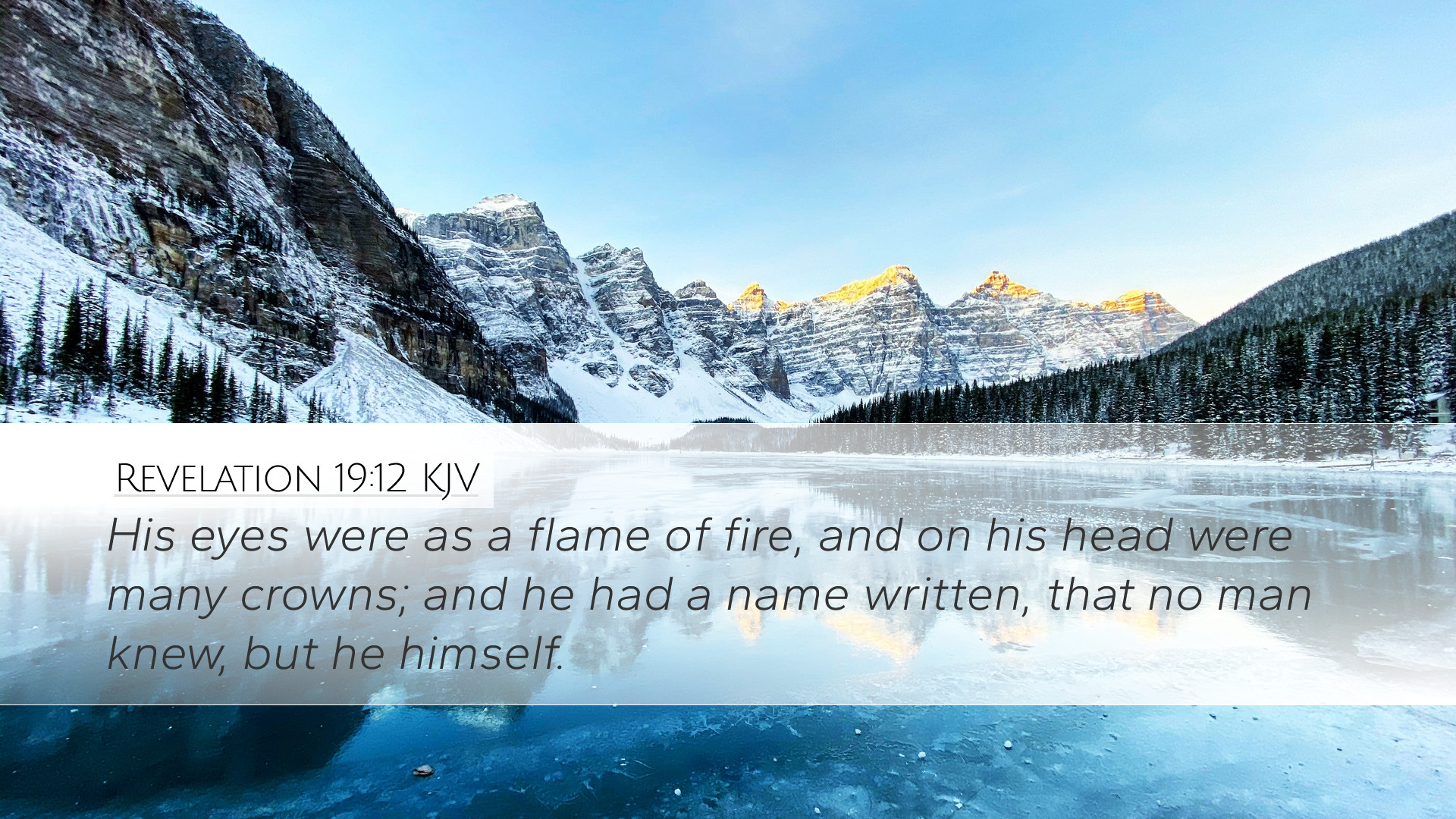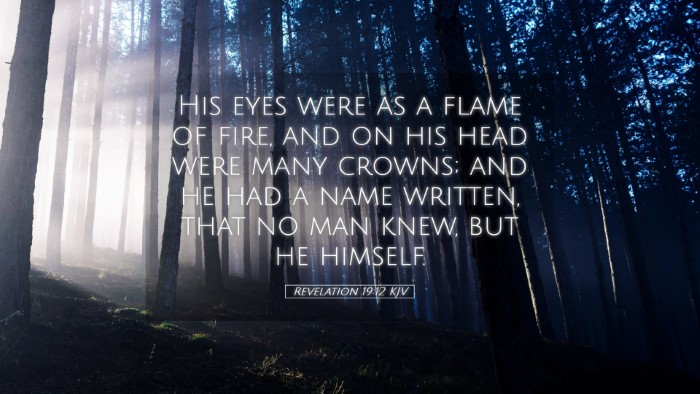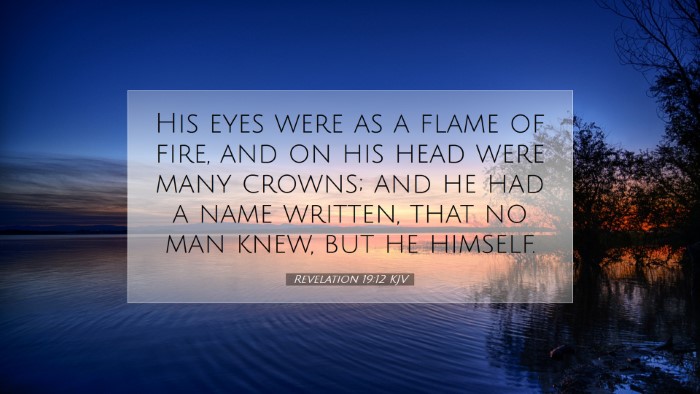Commentary on Revelation 19:12
Verse Text: "His eyes were like a flame of fire, and on his head were many crowns; and he had a name written, that no man knew, but he himself." - Revelation 19:12
Introduction
The book of Revelation unfolds the ultimate victory of Christ and His judgment upon the world. Chapter 19 is particularly poignant, presenting a vivid image of Christ as the conquering King. In this verse, we are introduced to powerful symbolism that encapsulates Christ's divine authority and nature.
Commentary Overview
This verse invites careful exegesis, drawing from classic commentaries to enrich our understanding of its significance. Matthew Henry, Albert Barnes, and Adam Clarke provide insights that resonate with various aspects of this portrayal of Christ.
Christ’s Eyes: Flames of Fire
Symbolism of the Eyes: The description of Christ's eyes as "like a flame of fire" signifies His penetrating judgment and the purity of His insights. As Albert Barnes notes, this imagery indicates the divine gaze that sees through pretense and reveals truth. This reflects a dual aspect of Christ—we see both His ability to discern the hearts of men and His motivation to purify His creation.
- Judgment: Christ's fiery eyes suggest His role as the righteous judge who cannot be deceived, as noted by Matthew Henry. It signifies His authority to execute justice.
- Search and Purification: Adam Clarke elaborates on how this fire also represents the purifying nature of His presence, consuming sin and refining His people.
The Many Crowns
Divine Authority: "On his head were many crowns" departs from the singular crown, emphasizing Christ's supreme sovereignty over all earthly and heavenly realms. Henry implies that the many crowns denote His dominion over all nations and powers, illustrating that no authority exists outside of His ultimate reign.
- Crowning Achievement: Each crown may represent a distinct authority, alluding to Christ’s triumph over different adversities, as echoed by Clarke.
- Multifaceted Sovereignty: Barnes elaborates on the significance of these crowns, representing His multifaceted sovereignty—King of Kings, Lord of Lords, and the eternal ruler over spiritual realms.
The Mysterious Name
Christ’s Unique Identity: The latter part of the verse references a name that "no man knew, but he himself." This concept emphasizes the sacredness and mystery of Christ's identity. According to Matthew Henry, it underscores the incomprehensible nature of God—which infinitely exceeds human understanding.
- Revelation of Identity: Adam Clarke posits that this hidden name signifies the personal relationship between Christ and His followers, suggesting that while aspects of His nature are revealed, the fullness remains beyond human grasp.
- Intimacy with the Divine: The name known only to Christ suggests an intimacy with the Father and the eternal aspect of His character that invites believers to seek deeper communion.
Theological Implications
The insights gleaned from this verse challenge theologians and scholars to ponder the implications of Christ's fiery judgment, sovereign authority, and the mystery of His character.
- Judgment and Advocacy: Understanding Christ as both judge and advocate invites reflection on His dual role in salvation history—grace meets judgment in the person of Christ.
- Authority in Worship: The many crowns compel worshippers to recognize the authority of Christ in all aspects of life and history, calling for reverence and allegiance to His lordship.
Conclusion
Revelation 19:12 encapsulates a profound revelation of Christ’s character and mission. Through careful study of public domain commentaries, we derive significant theological insights that challenge and inspire believers, pastors, and scholars alike. Whether contemplating His fiery judgment or reflecting on the mystery of His divine identity, we are called to a deeper understanding of the sovereignty and holiness of Christ, the King of Glory.


